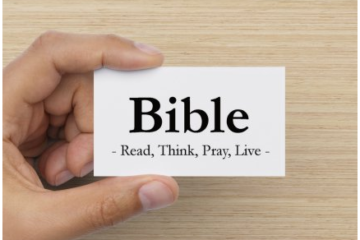Victim Status

[This is likely going to start out sounding insensitive, but hopefully it gets better.]
It seems like everyone has a victim status these days. They come in so many shapes and sizes that everyone can find at least one that is just right for them. Maybe yours is a learning disability, or a difficult childhood, your gender, the color of your skin, your nationality, your birth order, your economic status, or a physical impairment.
I’m certainly not saying that these things aren’t real or don’t have an effect on a person. After all, a victim by definition is someone who has been hurt by another person, people, or circumstance. I heard the other day that something like 85% of people come from some level of a dysfunctional family. When you add to this statistic all the other ways someone could become a victim, could be hurt by someone or something else, I’m sure you’d find that almost everyone has a legitimate claim to a victim status.
There is a small part of this that isn’t bad. Living in a world where almost everyone has been hurt by another person or circumstance means we almost all have a great capacity for compassion and empathy towards others. These experiences deepen our ability to care about the suffering of others.
The problem with being a victim, with experiencing hurt from other people or circumstance, is when we take it on as a status or an identity marker. When we take on a victim status, we allow ourselves to be defined by the things that have hurt us. This inevitably deepens the hurt by keeping the pain alive – after all, once we’ve taken it on as a victim status, an identity marker, we can’t lose it or we’ll lose our sense of self. Also a victim status often nurtures a low self esteem, a defeatist mindset, a sense of entitlement, an attitude of irresponsibility for one’s actions and attitudes, and an excuse for underachievement and mediocrity.
From my experience in working with at-risk teenagers, I can FIRMLY attest that the worst thing you can give someone is a victim status. They can overcome the pain and hurt and brokenness they have experienced from people or circumstance but what they will find it far more difficult to get over is accepting a victim status.
If you want to take a victim, a hurt person, and cripple them for life, give them a victim status. Teach them that the pain, the suffering, the disappointments, and the setbacks they have experienced IS WHO THEY ARE, they define them, and that they are not responsible for their lives or their actions, those people or circumstances that hurt them are. Dehumanize them by teaching them that they have no hope or choice, that there is nothing they can do, they are defined by the choices of others.
If you want to take a victim, a hurt person, and help them become whole, acknowledge the pain, grieve it with them, and then teach them, challenge them, and inspire them to overcome it. Empower them with the belief and knowledge that the things that have hurt them do not define them but that their own choices do. They choose who they are and who they will become. Teach them that they are personally responsible for their words, actions, and attitudes. Teach them that they may not be responsible for where they started in life but they are personally responsible for where they end up. Challenge them to let other people compete over who has the best victim status while they push themselves to overcome. Instill in them the conviction that they will never be defined as someone’s victim or the victim of circumstance and watch them soar.
Our world would be a better place for individual victims and society at large if we acknowledged people’s broken places and also empowered them by refusing to give them a victim status.



No Comment